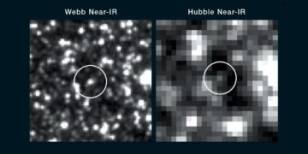
Since the moment of the Big Bang, the universe has been expanding continuously, sparking debates among scientists about the rate of this expansion. A new theory called “Early Dark Energy” has emerged recently, offering a potential solution to this cosmic mystery.
Exploring Early Dark Energy
Early Dark Energy is a theoretical form of energy believed to have existed in the early stages of the universe post-Big Bang. This energy might have played a role in accelerating the expansion of the universe beyond what we currently observe.
Solving Cosmic Conundrums
The discrepancy in measuring cosmic expansion rates, known as the Hubble constant, has puzzled cosmologists for years. Early Dark Energy could potentially bridge this gap by introducing an additional energy source that influenced early cosmic expansion dynamics.
This hypothesis suggests that cosmic expansion was faster in its infancy than it is now, leading to variations in Hubble constant measurements obtained through different methods.
Significance of Early Dark Energy
If proven true, Early Dark Energy could revolutionize our understanding of the cosmos. It may reshape our concepts about early universal structures and shed light on dark energy’s nature itself.
Further studies are necessary to validate this theory and explore its implications on our comprehension of space and time. If confirmed, it could mark a significant breakthrough in unraveling universal mysteries.
In Conclusion
The concept of Early Dark Energy presents an intriguing possibility for resolving cosmic mysteries and unveiling new insights into ancient universal dynamics. Continued research and observations will be vital in confirming this hypothesis’s validity and its impact on our perception of existence beyond Earth.





















